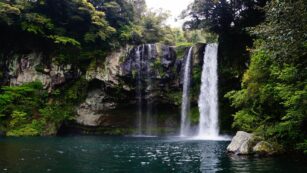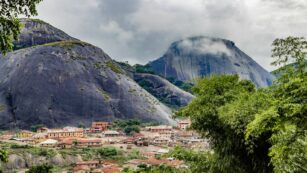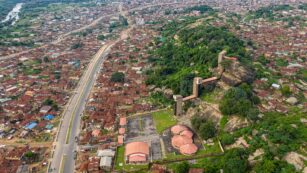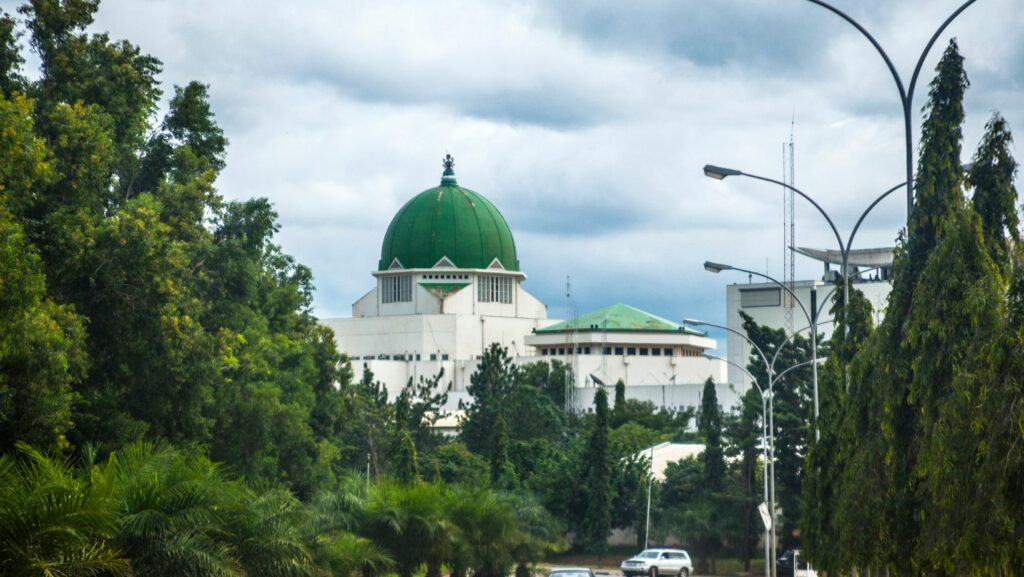Nigeria, often referred to as the “Giant of Africa,” boasts a rich tapestry of cultures, landscapes, and history that beckon travelers from around the globe. With its vibrant cities and breathtaking natural wonders, this West African nation offers a unique blend of experiences that cater to all types of adventurers. From the bustling markets of Lagos to the serene beauty of the Obudu Mountains, Nigeria is a destination that promises an unforgettable journey.
Tourist Attractions in Nigeria
Nigeria offers a variety of breathtaking tourist destinations that cater to lovers of nature, history, and adventure. From its expansive wildlife reserves to magnificent waterfalls, visitors can explore the country’s rich biodiversity and natural landmarks.
Yankari National Park
 Located in the northeastern part of Nigeria, Yankari National Park serves as a prime destination for wildlife enthusiasts. It ranks as one of the country’s largest wildlife refuges and is well-known for its rich fauna, including African elephants, lions, waterbucks, bushbucks, and baboons. The park also features natural hot springs, notably the Wikki Warm Spring, where visitors can enjoy a soothing dip in the naturally warm waters. The best time to visit Yankari is from November to May when wildlife sightings are most frequent due to the dry season.
Located in the northeastern part of Nigeria, Yankari National Park serves as a prime destination for wildlife enthusiasts. It ranks as one of the country’s largest wildlife refuges and is well-known for its rich fauna, including African elephants, lions, waterbucks, bushbucks, and baboons. The park also features natural hot springs, notably the Wikki Warm Spring, where visitors can enjoy a soothing dip in the naturally warm waters. The best time to visit Yankari is from November to May when wildlife sightings are most frequent due to the dry season.
Olumirin Waterfalls
Situated in Osun State, Olumirin Waterfalls is a stunning natural cascade known locally as “Erin-Ijesha Waterfalls.” This seven-tiered waterfall is not only a pleasure to behold but also a popular spot for hiking and picnicking. Each level of the waterfall offers a differing, breathtaking view of the surrounding plush landscape. It’s particularly refreshing during the hotter months, providing a cool, serene environment for visitors.
Unveiling Nigeria’s Rich Cultural Heritage
Historical Sites
 Exploring Nigeria’s historical sites offers insights into its age-old civilizations and the richness of its past. Among these, the ancient walls and traditional architecture of Kano City stand out. Dating back to the 14th century, these structures represent the ingenuity and the cultural sovereignty of the Kano Kingdom. Similarly, the Sungbo’s Eredo, a massive earthwork, accentuates the engineering prowess of the Yoruba people from around the same period. They offer visitors unparalleled glimpses into Nigeria’s pre-colonial history.
Exploring Nigeria’s historical sites offers insights into its age-old civilizations and the richness of its past. Among these, the ancient walls and traditional architecture of Kano City stand out. Dating back to the 14th century, these structures represent the ingenuity and the cultural sovereignty of the Kano Kingdom. Similarly, the Sungbo’s Eredo, a massive earthwork, accentuates the engineering prowess of the Yoruba people from around the same period. They offer visitors unparalleled glimpses into Nigeria’s pre-colonial history.
Cultural Festivals
Nigeria’s cultural festivals are a vibrant showcase of the country’s artistic heritage and communal spirit. The Argungu Fishing Festival in Kebbi State is one such spectacle, drawing participants and spectators from around the globe. Fishermen compete to catch the largest fish using traditional fishing tools, an event complemented by cultural dances, music, and crafts. Another significant event, the Durbar Festival, celebrated in several northern cities like Kano and Katsina, features colorful parades, horse riding displays, and elaborate costumes.
Museums and Artifacts
 Nigeria’s museums play a crucial role in preserving the nation’s cultural legacy. The Nigerian National Museum in Lagos houses a vast collection of artifacts, including the renowned Nok terracottas, which date back to 500 BC. These artifacts provide a tangible connection to Nigeria’s ancient societies. The museum’s exhibits also delve into the country’s colonial history and its journey to independence. Visiting these museums gives tourists a comprehensive overview of Nigeria’s historical breadth and cultural evolution.
Nigeria’s museums play a crucial role in preserving the nation’s cultural legacy. The Nigerian National Museum in Lagos houses a vast collection of artifacts, including the renowned Nok terracottas, which date back to 500 BC. These artifacts provide a tangible connection to Nigeria’s ancient societies. The museum’s exhibits also delve into the country’s colonial history and its journey to independence. Visiting these museums gives tourists a comprehensive overview of Nigeria’s historical breadth and cultural evolution.
The Bustling Urban Spaces
Lagos: A Melting Pot of Culture and Commerce
 Lagos, Nigeria’s largest city, thrives as a crucial hub of culture and commerce. It’s home to a rich tapestry of arts, music, and fashion, which seamlessly integrates with its burgeoning economic landscape. Tourists can explore a variety of attractions in Lagos, such as the iconic Nike Art Gallery, which features an extensive collection of Nigerian and African art, and the Lekki Market where crafts, artworks, and fabrics showcase Nigeria’s cultural diversity.
Lagos, Nigeria’s largest city, thrives as a crucial hub of culture and commerce. It’s home to a rich tapestry of arts, music, and fashion, which seamlessly integrates with its burgeoning economic landscape. Tourists can explore a variety of attractions in Lagos, such as the iconic Nike Art Gallery, which features an extensive collection of Nigerian and African art, and the Lekki Market where crafts, artworks, and fabrics showcase Nigeria’s cultural diversity.
Abuja’s Modern Architecture
In contrast to the historical ambiance of Lagos, Abuja, Nigeria’s capital, showcases striking modern architecture set against a backdrop of rolling hills. A notable site is the National Mosque with its impressive golden dome and towering minarets, a symbol of the city’s architectural and cultural identity. Adjacent to the grandeur of traditional designs, the Millennium Park offers a serene environment, ideal for picnics and leisurely strolls. The park, designed by Italian architect Manfredi Nicoletti, is the largest public park in Abuja and highlights the city’s commitment to combining green spaces with urban development.

